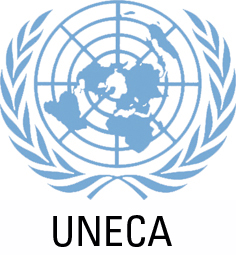Focal point
Location
P.O. Box 3001
Addis Ababa, Ethiopia
Established by the Economic and Social Council (ECOSOC) of the United Nations (UN) in 1958 as one of the UN's five regional commissions, ECA's mandate is to promote the economic and social development of its member States, foster intra-regional integration, and promote international cooperation for Africa's development.
Made up of 54 member States, and playing a dual role as a regional arm of the UN and as a key component of the African institutional landscape, ECA is well positioned to make unique contributions to address the Continent’s development challenges.
ECA’s thematic areas of focus are as follows:
- Macroeconomic Policy
- Regional Integration and Trade
- Social Development
- Natural Resources
- Innovation and Technology
- Gender
- Governance
Members:
Resources
Displaying 301 - 305 of 872Consultative workshop on land policy in Africa: a framework on action to secure land rights, enhance productivity and secure livelihoods :summary of key messages and recommendations of the consultative workshop
The consultative workshop, which took place 27-29 March 2006 at the United Nations Conference Centre (UNCC), Addis Ababa, was the first step in the process of developing a land policy framework and guidelines. The discussions were informed by an issues/discussion paper, and brought together representatives from African governments, Regional Economic Communities, Civil Society including farmers' organizations, African private sector, Centres of Excellence and Development Partners.
Consultative workshop on land policy in Africa: a framework on action to secure land rights, enhance productivity and secure livelihoods
In view of the importance of land to Africa’s social, political and economic development, as well as sustainable resource management, AU/NEPAD, ECA and ADB, under the leadership of the AU Commission, agreed to work jointly during 2006-2007 to develop a land policy framework and guidelines, as well as the modalities for its implementation at country, regional and continental levels.
Consultative workshop on land policy in Africa: a framework on action to secure land rights, enhance productivity and secure livelihoods
In view of the importance of land to Africa’s social, political and economic development, as well as sustainable resource management, AU/NEPAD, ECA and ADB, under the leadership of the AU Commission, agreed to work jointly during 2006-2007 to develop a land policy framework and guidelines, as well as the modalities for its implementation at country, regional and continental levels.
Consultative workshop on land policy in Africa: a framework on action to secure land rights, enhance productivity and secure livelihoods
In view of the importance of land to Africa’s social, political and economic development, as well as sustainable resource management, AU/NEPAD, ECA and ADB, under the leadership of the AU Commission, agreed to work jointly during 2006-2007 to develop a land policy framework and guidelines, as well as the modalities for its implementation at country, regional and continental levels.
Consultative workshop on land policy in Africa: a framework on action to secure land rights, enhance productivity and secure livelihoods
In view of the importance of land to Africa’s social, political and economic development, as well as sustainable resource management, AU/NEPAD, ECA and ADB, under the leadership of the AU Commission, agreed to work jointly during 2006-2007 to develop a land policy framework and guidelines, as well as the modalities for its implementation at country, regional and continental levels.


